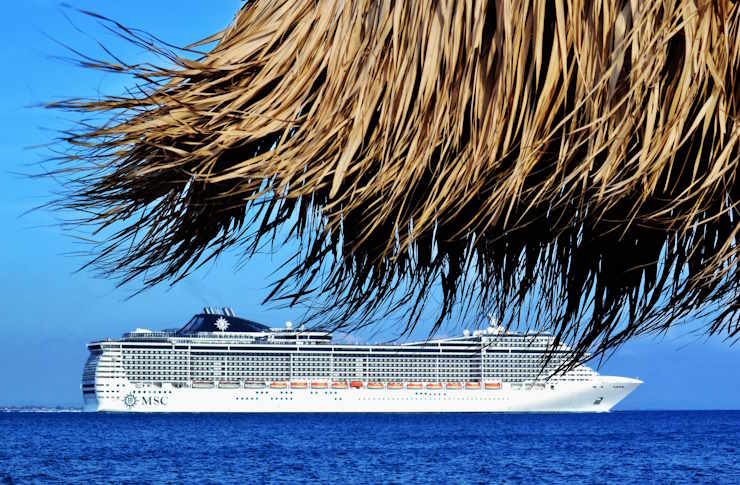Setting Sail: A Guide to Cruise Travel for Seniors
Cruising has become an increasingly popular vacation choice for seniors, offering a unique blend of relaxation, adventure, and convenience. With all-inclusive amenities, diverse itineraries, and the ability to visit multiple destinations without constantly packing and unpacking, cruise travel caters well to the preferences of older adults. This comprehensive guide explores the benefits of cruising for seniors, highlights popular destinations, and provides valuable tips for making the most of your voyage.

What are the most popular cruise destinations for seniors?
Senior travelers have a wide array of cruise destinations to choose from, catering to various interests and preferences. The Caribbean remains a perennial favorite, offering warm weather, beautiful beaches, and rich cultural experiences. Alaska cruises are popular for their stunning natural scenery, wildlife viewing opportunities, and the chance to explore America’s last frontier. Mediterranean cruises allow seniors to immerse themselves in history, art, and cuisine, with stops at iconic cities like Rome, Barcelona, and Athens. River cruises along the Danube, Rhine, or Nile provide a more intimate travel experience, perfect for those who prefer smaller ships and closer cultural encounters.
How can seniors find the best cruise discounts?
Finding great deals on cruises requires a bit of research and flexibility, but there are several strategies seniors can employ to secure discounts. Many cruise lines offer special rates for passengers aged 55 and older, so it’s always worth inquiring about senior discounts when booking. Traveling during the shoulder season (just before or after peak season) can result in significant savings. Joining cruise line loyalty programs can provide access to exclusive deals and perks. Additionally, working with a travel agent specializing in cruises can help seniors navigate the myriad of options and find the best value for their budget.
What should seniors consider when choosing a cruise ship?
When selecting a cruise ship, seniors should consider factors such as accessibility, onboard amenities, and the overall atmosphere. Larger ships often offer more diverse entertainment options and dining choices but may require more walking. Smaller ships provide a more intimate experience and can access ports that larger vessels cannot. It’s important to research the ship’s layout, cabin types, and available facilities to ensure they meet any specific needs or preferences. Some cruise lines cater specifically to older adults, offering activities and amenities tailored to this demographic.
How can seniors prepare for a safe and enjoyable cruise experience?
Preparation is key to ensuring a safe and enjoyable cruise experience for seniors. It’s crucial to consult with a healthcare provider before the trip to discuss any potential health concerns and obtain necessary medications. Travel insurance is highly recommended to cover unexpected medical emergencies or trip cancellations. Packing appropriate clothing for both onboard activities and shore excursions is essential, as is bringing any necessary mobility aids. Familiarizing oneself with the ship’s layout and safety procedures upon boarding can provide peace of mind throughout the journey.
What are the cost considerations for senior cruise travelers?
When planning a cruise, seniors should consider various cost factors to ensure they get the best value for their vacation budget. While cruise fares can vary widely based on itinerary, cabin type, and season, there are often opportunities for significant savings.
| Cruise Line | Typical Price Range (per person) | Notable Senior Discounts |
|---|---|---|
| Carnival | $300 - $1,500 | Special 55+ rates on select sailings |
| Royal Caribbean | $400 - $2,000 | Reduced deposits for 55+ |
| Norwegian | $400 - $1,800 | AARP member discounts available |
| Princess | $500 - $2,500 | Senior citizen fare discounts |
| Holland America | $600 - $3,000 | Senior rates on many itineraries |
Prices, rates, or cost estimates mentioned in this article are based on the latest available information but may change over time. Independent research is advised before making financial decisions.
Beyond the base fare, seniors should budget for additional expenses such as shore excursions, specialty dining, and gratuities. Many cruise lines offer drink packages and internet plans that can be more economical when purchased in advance. It’s also worth noting that single seniors may face higher costs due to single supplement fees, though some cruise lines offer single cabins or roommate-matching programs to mitigate this expense.
In conclusion, cruising offers seniors an excellent way to see the world while enjoying the comforts of a floating resort. With careful planning and consideration of individual needs and preferences, older adults can find a cruise experience that provides relaxation, adventure, and lasting memories. Whether opting for a sun-soaked Caribbean getaway or a culturally rich European river cruise, the world of senior cruising is vast and accommodating, promising unforgettable journeys on the high seas.






